- Home
- David Lubar
Invasion of the Road Weenies Page 11
Invasion of the Road Weenies Read online
Page 11
Now what? I walked past the house and around the corner. The fence ran along the side, but it had several large holes near the bottom. I could see a yard in the back. It was almost all dirt—just one or two small patches of dying grass. I ducked through one of the holes and crawled into the yard.
What would I say if he came out? “Hi, Tommy, just wanted to drop by for a chat.” Yeah, that would fool him for sure. I just hoped he hadn’t seen me.
There were two windows in the back on the first floor. I went up to one and tried to look through. It was so dirty it might as well have been made of slate. I tried another. It was a bit better. There was movement inside the house. I found a corner of the glass that wasn’t as dirty as the rest and peered into Tommy’s world.
He was facing away from me, standing in front of this large box. It was about six inches high, and about six feet on a side, like a big sandbox. It looked like it was filled with dirt. Tommy stepped up into it, then stretched out his arms and flopped forward.
He just lay there, facedown in the dirt.
Slowly, Tommy changed. His fingers grew longer. Oh man, I didn’t believe what I was seeing. Tommy was growing into the soil. His feet were bare. His toes burrowed into the ground, too.
I must have watched for at least an hour. I wanted to run, but I had to see. Tommy was no longer recognizable as human in any sense. His body, the middle part, was still on top of the soil, but his arms and legs and head had sunk into the earth.
I had to get out of there. This was all too weird. I started to take a step away.
I couldn’t.
Something was clutching my foot. I looked down. A thick vine had come up from the ground by my feet and wrapped around my ankle. It had caught me.
Tommy had caught me.
I never talk in school. I could, I guess, if I wanted to. But I have nothing in common with these flesh creatures, these children and teachers. It’s not a problem. My mind is very strong, and they bend to my will. I’m not lonely. I talk with Tommy every night. We have a lot to say to each other. A whole lot. We talk and we plan, and we decide who will join us next.
INVASION OF THE
ROAD WEENIES
As the school bus rattled down the road, Marlon looked out the window and spotted a jogger coming toward him. The guy was wearing blue shorts, a sweat-streaked white T-shirt, and a red baseball cap. When the bus reached the man, Marlon noticed something else. The jogger was frowning.
“They never smile,” Marlon said.
“Who?” Hector asked.
“The joggers.” Marlon turned toward his seatmate. “Have you ever seen one smile?”
“Guess not,” Hector said. “So?”
“I don’t know. But what’s the point if it isn’t fun? They always look like they’re hurting themselves.”
Hector shrugged and zipped open his backpack, reached in, pulled out his homework, then shoved it back in. That drove Marlon crazy. Every day, Hector would check his pack a dozen times during the ride.
“It’s not going to vanish,” Marlon said.
“I just want to make sure it’s there,” Hector said. He let out a nervous laugh. “Seeing is believing.”
On the way to school, Marlon saw three more joggers. Different ages, different clothes, but the same pained expression. He started thinking of them as road weenies—mindless, grim-faced creatures who puffed and gasped all over town for reasons nobody would ever know.
During class, while looking out a window from the second floor, Marlon noticed another jogger slogging along the road that ran past the school. Marlon had a hard time telling from the distance, but he was pretty sure this jogger wasn’t smiling, either.
On the long bus ride home—Marlon’s was the next to last stop—he spotted four more joggers. No smiles. And, odder yet, no familiar faces.
I don’t know any of them, Marlon realized as he got off the bus. He’d lived in Lynchville all his life and knew most of his neighbors, but there wasn’t a single familiar face among the joggers.
That night, Marlon drew a rough map of the town in his notebook. At the top of the map, he wrote RW for road weenies. The next morning, he marked the spot where he saw each jogger. He used initials: RH for the guy with the red hat, BB for the guy with the black beard, SV for the woman with the sun visor, and so on. The bus was often a couple minutes early or late, depending on traffic. So Marlon saw the joggers at slightly different times each day. From where they were on the road, he was able to figure out part of each jogger’s path.
Marlon spent three weeks gathering all the information. When he was done, he discovered that the map revealed a secret. They cover every single road in town, he thought. Each day, the joggers ran over every mile of roadway.
On Sunday, Marlon got on his bike, ducked into the tall weeds in a gully along Locust Street, and waited for a jogger to pass. It didn’t take long. Marlon watched until the man was far ahead. Then he climbed out of his hiding place and pedaled slowly behind, keeping back where he wouldn’t be spotted.
The man jogged all the way to the end of Locust, then turned south on Bryar. He covered half of Bryar, all of Elm, and the eastern part of Flagler. Finally, he disappeared into an old barn at the edge of town.
Marlon was about to pedal closer when another jogger came along. This one also slipped into the barn. Marlon stayed back and watched. As the morning passed, five more joggers showed up and went inside. Three joggers left the barn, but they were different people—not the same ones who had come in that morning.
Finally, as curiosity overwhelmed caution, Marlon took a chance and sneaked toward the barn from the side opposite the door. He knelt by the wall, then crept around the corner and moved along until he reached a spot below a small window. Holding his breath, Marlon stood and peeked inside.
The barn was filled with men and women. Marlon recognized some of the joggers he’d seen. They were all just standing there in a line. As Marlon watched, another jogger came through the door. He walked to the rear of the line. A jogger at the other end walked to the door, then loped out.
As each jogger returned, another left. This continued until the sun began to set. Then, as the rest came in, nobody else went out to replace them. By dark, they were all inside, standing motionless. The last jogger to return was a man with red jogging shorts and a white T-shirt. He walked up and down the line once, as if he was in charge, and then took his place at the back.
Marlon crept quietly around to the front of the barn. He found a stick and slid it through the handles on the double doors, locking them closed.
That night, in bed, Marlon wondered what he hoped to accomplish. He wasn’t sure why he’d locked the joggers inside. Maybe to help figure out what was going on.
He didn’t see any joggers the next morning.
“Weird,” Hector said as they rode toward school. “I just got these glasses.” He pulled them off and squinted in the direction of the window. Then he wiped the glasses with the bottom of his shirt and put them back on. “They seemed fine last night. Do the trees look out of focus to you?”
“Nope.” Marlon wasn’t really listening to Hector. He was busy staring out the window, wondering what had happened after he’d locked the barn door.
I’ll go to the barn after school, he told himself. But he was halfway afraid to go back.
The next morning, the world was a little blurry when Marlon got up. On the way to school, he blinked and stared through the window of the bus, looking for joggers. There weren’t any.
“I don’t remember everything ever being so fuzzy,” Hector said. “Something is definitely different.”
That night, Marlon went to the barn.
He pulled out the stick and opened the door. The joggers were inside, standing the way he’d left them. “Come on,” he called. “Get out there. Come on. Jog!”
They didn’t move. Marlon stared out the door at the blurry, dim land around him. The world looked like a faded memory.
Faded memory . . . Somethin
g seen once, but slowly forgotten. Maybe seeing was even more than believing. Maybe seeing was all that kept things real. Most people never bothered to look at the world. They were too busy talking or playing. But the joggers—all they did was stare ahead.
Marlon started to jog, running the map of town through his head, wondering how long it would take him to cover every street and see every part of town. How long would it take to freshen the memory?
It took all night. But in the morning, as he reached the barn, finishing the circuit, the world seemed more real.
When Marlon opened the door, the man in the red shorts was waiting for him, along with the other joggers. “Glad you could join us,” the man said. “You’d better get going. It’s time to start today’s run.” He told Marlon what route to take.
“But . . .” Marlon was exhausted from jogging all night.
“Get going,” the man said. His voice had turned cold.
Marlon started jogging up the road. He didn’t smile.
WE INTERRUPT THIS
PROGRAM
Kids notice things that adults never see. That’s how I found the INSERT button on the TV remote control. When my folks are home from work, my dad does the channel surfing, so he uses the remote a lot in the evening. But after school, I usually have the TV all to myself for about an hour. Then my stepbrother Harold gets home and takes away the remote.
I was sitting there one afternoon, trying to find something worth watching, when I ran my finger along the side of the remote control. Instead of a smooth edge, I felt a seam. I tore my eyes from the TV—it was an old western movie—and looked at the remote. Sure enough, the front was in two pieces. I pushed and pulled at the bottom until a piece slid open. It was like a battery compartment, but I knew the battery went in the back. This front compartment just held two buttons: INSERT and REMOVE.
Not giving it any special thought, I pressed INSERT. In a flash, there were cowboys all around me. They were trying to control a cattle stampede. There were also cows all around. I’d inserted myself into the program.
Usually, I don’t think very fast, but some instinct made me press REMOVE.
I was back in the living room. This was interesting.
For the next week, I went in and out of hundreds of places. The cartoons were the coolest, but they could be pretty dangerous. I thought I was in big trouble the time I jumped in just when Wile E. Coyote was setting off a bomb. But it was a cartoon bomb, so it didn’t hurt me. It felt strange. I can’t really describe it except that it was like being clobbered by tons of whipped cream.
Then, I made a mistake. I was having so much fun riding a raft down this wild river that I lost track of time. At the end of the trip, I hit REMOVE and popped back to the couch just as Harold was walking in the room.
“Hey, how’d you do that?”
“Do what?” I asked, sliding the compartment closed.
Harold grabbed the front of my shirt and yanked me off the couch. “Do you want me to make you tell?”
What could I do? I knew I’d still have an hour to myself, even if Harold took over each day when he got home. Besides, if I didn’t tell him, he’d twist my arm real bad. I showed him the button.
“Thanks. Now get out of here.” Harold grabbed the remote and turned back to the TV. He started surfing the channels. I guess he was looking for somewhere exciting to go for his first time. He kept passing by stuff, saying, “No fun,” “Boring,” or “Give me a break.”
Finally, he stopped. “That’s more like it.”
I looked at his choice. “I don’t think that’s a good idea.”
“I didn’t ask you,” he said.
“But—”
He pushed me away. “Get out.” Then he pointed the remote at the TV and pressed INSERT.
It was interesting. I always wondered whether I vanished or faded out when I did it. Now I knew. Harold vanished instantly. I looked at the TV Yup—there he was, right in the middle of his favorite show. Harold was a real Trek fan.
Too bad he’d decided to insert himself in a scene that showed nothing but space. Too bad he didn’t have a space suit. It was pretty messy, and I couldn’t stand to watch. I walked over to the TV and changed the channel by hand. I guess I’ll be doing a lot of that until I can get the folks to buy another remote.
I sure hope it comes with all the same features.
THE SMELL OF DEATH
It was in the air again. I noticed it when I got home from baseball practice. That smell of death. There was no mistake. Dad had sprayed the lawn. Death to the weeds. Death to the bad bugs. Death to the good bugs, too, I guess, but that was part of the cost of victory.
“Spray the lawn again?” I asked Dad when I walked into the open garage where he was putting away a yellow bucket with a black skull and crossbones printed on the side. I figured the stuff was either poison or it was made by pirates.
“You bet,” Dad said. “Have to stay on top of unwanted vegetation, or the lawn will get out of control. Can’t let the weeds take over. Once they do, it’s almost impossible to get rid of them. And the battle against insect pests requires eternal vigilance. Let your guard down, and they’ll devour anything green.”
“Uh-huh.” I was tempted to ask Dad why he didn’t just let everything alone. Maybe the insects would eat the weeds. But I had a feeling he wouldn’t appreciate the question, so I went inside and plunked down in front of the television. Even with the windows closed, I could still catch a faint whiff of chemicals. But after an hour or so, I didn’t notice it anymore. I guess I got used to it.
A week later, I found Dad crawling across the lawn, taking a close look at the flowers that bordered the walkway along the front of the house.
“Lose something?” I asked.
“It’s those darned bugs,” he said. “Look what they’re doing to my Alstroemeria.”
I looked over his shoulder at the flowers I assumed must be the Astromania, or whatever it was he called them. They didn’t look very flowery. Something had been munching down on them like they were a bag of chips. “Didn’t you just spray?” I asked.
Dad nodded.
“Better get your money back,” I told him. “The stuff isn’t any good.”
“It’s fine,” he said. “The bugs must have developed an immunity to it.”
“Huh?” I asked, getting the sinking feeling that I was back in my first period science class with Mr. Calahan. I half expected Dad to pull out a chart and some plastic models.
“It’s like this,” he said. “A spray will kill most of the bugs. But some of the bugs survive. They just have a natural ability that keeps the spray from hurting them. And some of them pass on that ability to the next generation.”
“Like I got Mom’s nose?” I asked.
“Yeah.” Dad nodded. “Next thing you know, all the bugs have resistance. So it’s time to switch to a different spray. Ideally, the proper technique—”
“Got it,” I said, cutting him off before he launched into a long discussion. I understood the basic concept. Some bugs just weren’t hurt by a certain spray. Whatever it was about them that caused this, it could be passed along to their little bug kids. And each time Dad sprayed, and each time the bugs had kids, the spray did less and less damage, until it was pretty much completely useless. In a twisted sort of way, Dad was helping the bugs get stronger each time he tried to kill them.
I didn’t give it much thought at first, but it was hard to ignore. Every week or two, I’d find Dad spraying something new, and I figured there were enough types of spray around so he’d never run out. Dad would stay happy, and I guess the guy at the hardware store where Dad bought the spray would stay happy. The only ones who wouldn’t be happy were the bugs. But the bugs didn’t get to vote on the matter.
Then I started thinking about the bugs. And I thought about their immunity. I wondered what else we might be changing. What if it was the stupid bugs who were being killed off? What if the smart bugs had figured a way to survive? Then they’d have sma
rt kid bugs. And those kids—some of them would be smart, and they’d survive. Then they’d have kids. And bugs have kids a lot faster than people have kids, so everything would be speeded up.
No, I decided that was a crazy idea. Bugs were just bugs. Even a smart bug wasn’t much brighter than a clump of earwax.
But if they were so dumb, what was going on in the backyard? I was the first one to notice it. The bugs had crawled from the lawn into a pile. No, it wasn’t a pile—it was more like a tube.
I’d never seen bugs like these before. I moved closer to the living tube that was forming in our yard. It was tall enough to reach my chest. I leaned over to get a better look at the insects. They were a bit like beetles, but each one had an extra section—it was sort of like a small rubber ball. The sections pointed toward the inside of the tube.
“Dad,” I called, “you’ve got a ton of bugs out here.”
“Where?” Dad came running, armed with his latest spray. He let them have it. It might as well have been water. They didn’t even seem to notice.
Then they let loose with their own spray. A greenish cloud drifted out from the tube—puffing out from each bug’s extra sections and drifting through the air. I knew right away it was bad stuff.
“Run,” Dad said.
We headed for the front yard. But when we got there, we saw another cloud of gas spreading out from the Rathman’s yard across the street.
I looked to the left. Several more bug tubes were spreading their poison.
I looked to the right. The air was so clouded I couldn’t see anything.
There was nowhere to run. There was nothing to do. The cloud drifted over us. The smell—so sweet it made me sick—got everything inside my head spinning around. I dropped to my knees, too weak to walk or even crawl. After a while, the cloud thinned out and I got fresh air into my lungs.

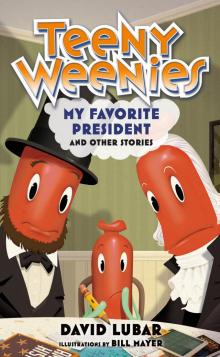 Teeny Weenies: My Favorite President
Teeny Weenies: My Favorite President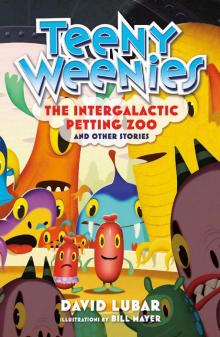 Teeny Weenies: The Intergalactic Petting Zoo
Teeny Weenies: The Intergalactic Petting Zoo Teeny Weenies: The Eighth Octopus
Teeny Weenies: The Eighth Octopus Emperor of the Universe
Emperor of the Universe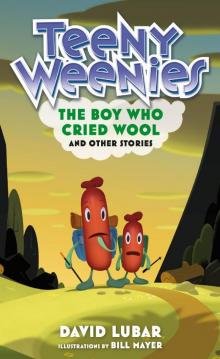 Teeny Weenies: The Boy Who Cried Wool
Teeny Weenies: The Boy Who Cried Wool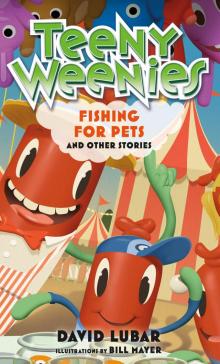 Teeny Weenies: Fishing for Pets
Teeny Weenies: Fishing for Pets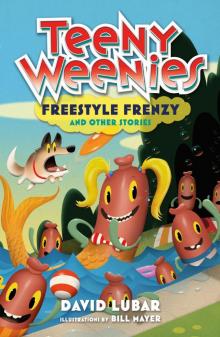 Teeny Weenies: Freestyle Frenzy
Teeny Weenies: Freestyle Frenzy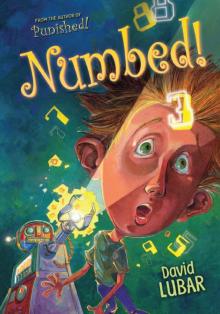 Numbed!
Numbed!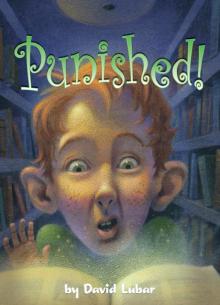 Punished!
Punished!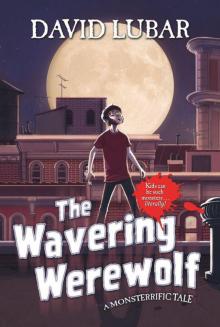 The Wavering Werewolf: A Monsterrific Tale (Monsterrific Tales)
The Wavering Werewolf: A Monsterrific Tale (Monsterrific Tales)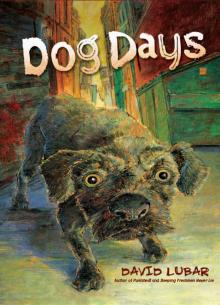 Dog Days
Dog Days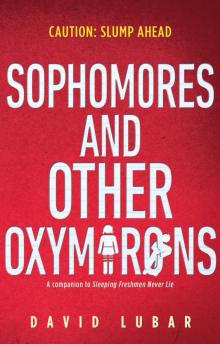 Sophomores and Other Oxymorons
Sophomores and Other Oxymorons The Psychozone
The Psychozone My Rotten Life
My Rotten Life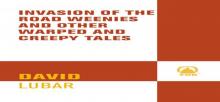 Invasion of the Road Weenies
Invasion of the Road Weenies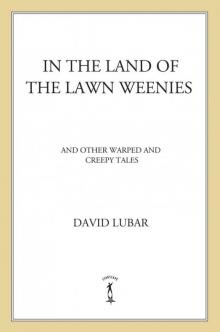 In the Land of the Lawn Weenies
In the Land of the Lawn Weenies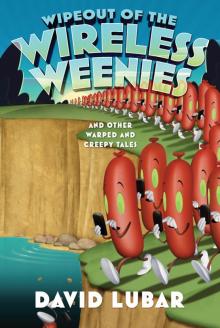 Wipeout of the Wireless Weenies
Wipeout of the Wireless Weenies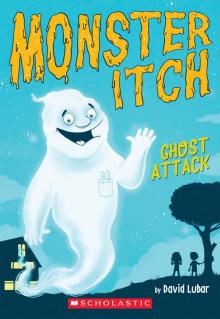 Ghost Attack
Ghost Attack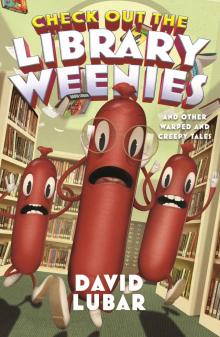 Check Out the Library Weenies
Check Out the Library Weenies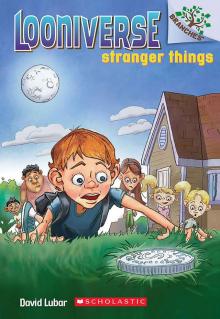 Looniverse #1: Stranger Things (A Branches Book)
Looniverse #1: Stranger Things (A Branches Book)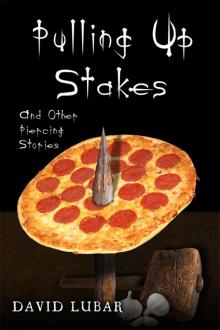 Pulling up Stakes and Other Piercing Stories
Pulling up Stakes and Other Piercing Stories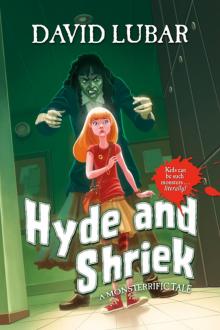 Hyde and Shriek
Hyde and Shriek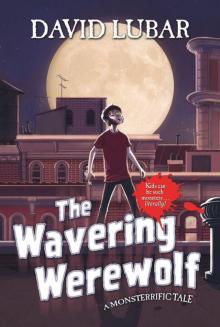 The Wavering Werewolf
The Wavering Werewolf Dead Guy Spy
Dead Guy Spy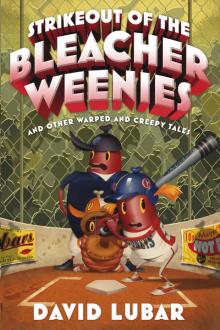 Strikeout of the Bleacher Weenies
Strikeout of the Bleacher Weenies The Big Stink
The Big Stink The Battle of the Red Hot Pepper Weenies
The Battle of the Red Hot Pepper Weenies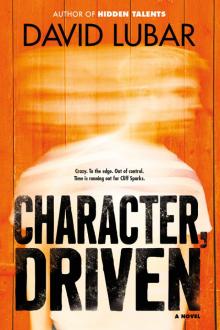 Character, Driven
Character, Driven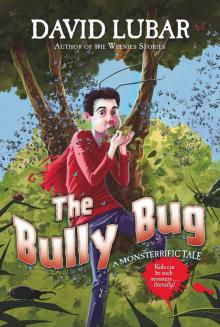 The Bully Bug
The Bully Bug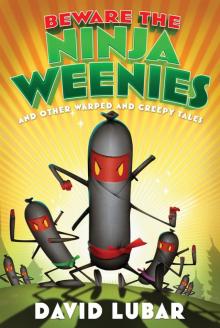 Beware the Ninja Weenies
Beware the Ninja Weenies Extremities: Stories of Death, Murder, and Revenge
Extremities: Stories of Death, Murder, and Revenge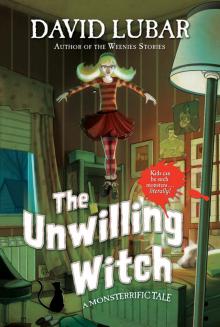 The Unwilling Witch
The Unwilling Witch Goop Soup
Goop Soup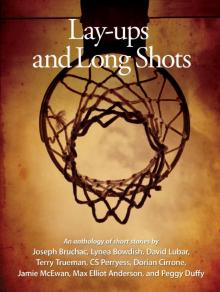 Lay-ups and Long Shots
Lay-ups and Long Shots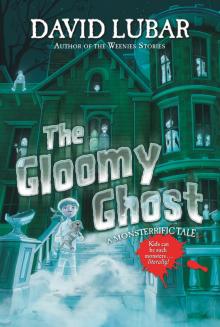 The Gloomy Ghost
The Gloomy Ghost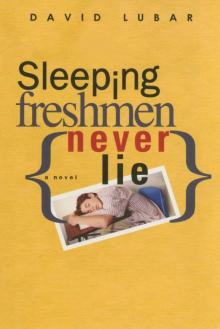 Sleeping Freshmen Never Lie
Sleeping Freshmen Never Lie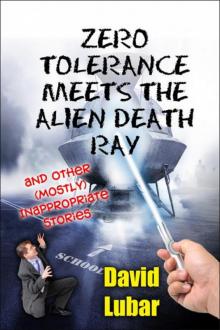 Zero Tolerance Meets the Alien Death Ray and Other (Mostly) Inappropriate Stories
Zero Tolerance Meets the Alien Death Ray and Other (Mostly) Inappropriate Stories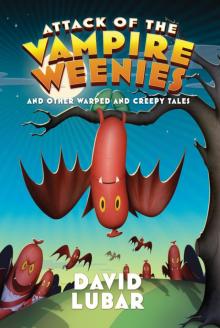 Attack of the Vampire Weenies
Attack of the Vampire Weenies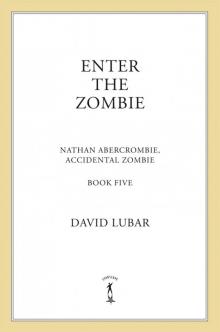 Enter the Zombie
Enter the Zombie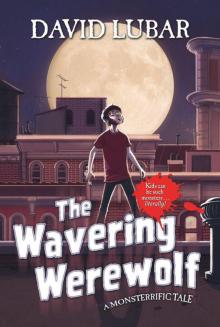 The Wavering Werewolf_A Monsterrific Tale
The Wavering Werewolf_A Monsterrific Tale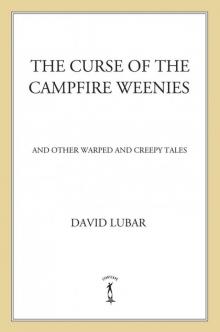 The Curse of the Campfire Weenies
The Curse of the Campfire Weenies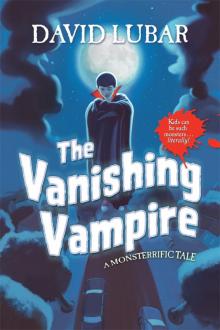 The Vanishing Vampire
The Vanishing Vampire